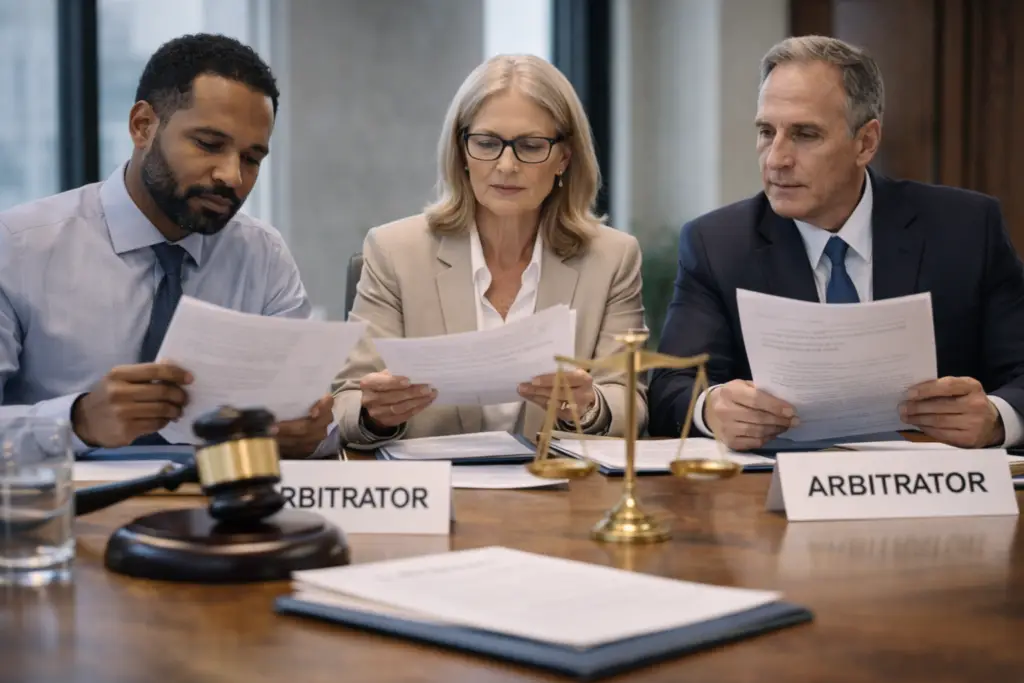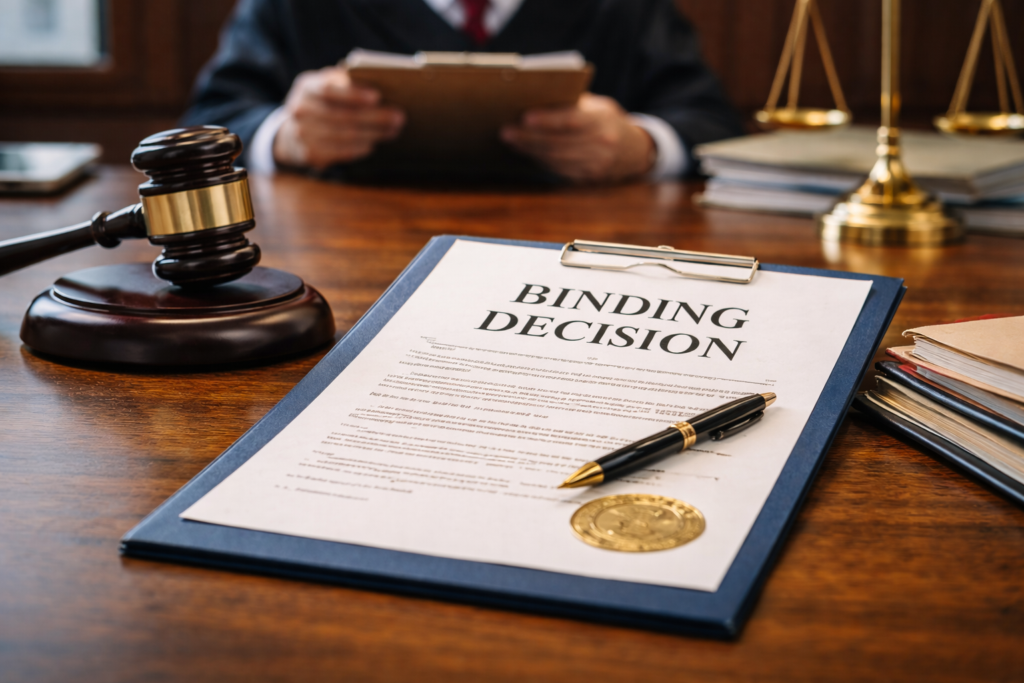What Is an Arbitration Panel?

I hear the same story from business owners all the time. A contractor in Florida signs a job, everything seems smooth, and then suddenly a disagreement over the contract terms pops up. Nobody wants to go to court, and most people do not want the costly
What Is a Binding Decision?

A binding decision is a ruling made by a neutral third party, such as a judge, arbitrator, or administrative body, that the parties involved must follow. In legal terms, it has the same weight as a court order. Unlike casual agreements or negotiations, a binding
What Is an Arbitration Agreement? A Clear Legal Guide

If you’ve ever signed a cell phone contract, started a new job, or signed paperwork for a gym membership in places like Long Island, Manhattan, or Queens, chances are you agreed to something you barely noticed in the fine print: an arbitration agreement.
What Is Breach of Contract? A Clear Guide to Understanding Your Rights and Remedies

Anyone who has ever hired a contractor, purchased a service, or entered into a business agreement knows that contracts create structure. But sometimes things do not go as planned. A vendor misses a deadline, a payment never arrives, or one party simply
What Is an Arbitration Awards: Enforcement and Challenges

Understanding arbitration awards—and the enforcement process—is crucial for any organization relying on arbitration proceedings as its dispute-resolution mechanism. Arbitration offers a faster, confidential alternative dispute resolution
What is a Civil Dispute? Types, Process, and Resolution Methods

A civil dispute refers to a conflict between two or more parties in which one party seeks compensation or a remedy for harm caused by the other party. These disputes are typically addressed in civil courts, and they can cover a broad spectrum of legal issues,
What Is a Legal Dispute?

Legal disputes involve disagreements between individuals, organizations, or governments, requiring a legal process for resolution. These disputes range widely, from contract disputes between business partners to civil suits
What is an Award in Arbitration?

In the context of arbitration, an “Award” refers to the final decision rendered by an arbitrator or a panel of arbitrators at the conclusion of an arbitration proceeding. Unlike a court judgment, which is delivered by a judge, an award is the result of a private dispute resolution process that is agreed upon by the
What is Neutral Evaluation?

Neutral Evaluation is a process in which a neutral third party, often an expert in the subject matter of the dispute, assesses the strengths and weaknesses of each side’s arguments and evidence. The evaluator then provides a non-binding opinion on the likely outcome of the case, which
What is Online Dispute Resolution (ODR)?

Online Dispute Resolution (ODR) refers to the use of technology, particularly the internet, to facilitate the resolution of disputes between parties. ODR encompasses various methods such as negotiation, mediation, and arbitration conducted through digital platforms. It aims to provide a more accessible,

